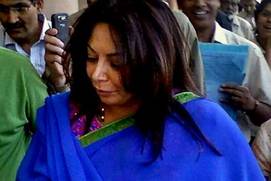
New Delhi, August 28: The Supreme Court on Tuesday pulled up the Centre over leakage of its tapped conversation of former corporate lobbyist Niira Radia saying its probe report is hardly satisfactory.
A bench of justice GS Singhvi and justice SJ Mukhopadhaya also took strong exception to the Centre's failure to put in place a proper mechanism to prevent such leakage in future.
"Those probe reports are hardly satisfactory. The less said the better. Somebody must be made accountable for the leakage," the bench said after the Centre submitted to it that the leakage has not been done on its part or by its officials.
"There is no reply on how to prevent such leakages in future. In future it will again happen. If you are not able to protect, then why you go for tapping," the bench observed.
It also said the probe report submitted by the government does not specifically give clean chit to any department.
Tata Group chairman Ratan Tata had moved the apex court on November 29, 2010 for action against those involved in the leakage of the tapes saying that the leakage amounted to infringement of his fundamental right to life, which includes right to privacy under Article 21 of the Constitution.
The conversations were recorded by the government as part of surveillance of Radia's phone, ordered by the Directorate General of Income Tax (Investigation) on a complaint received by the finance minister on November 16, 2007 alleging that within a span of nine years, she had built up a business empire worth Rs.300 crore.
The government had recorded 180 days of Radia's conversations -- first from August 20, 2008 onwards for 60 days and then from October 19 for another 60 days. Later on May 11, 2009, her phone was again put on surveillance for another 60 days following a fresh order given on May 8.




Comments
Add new comment